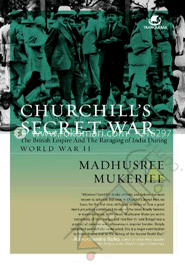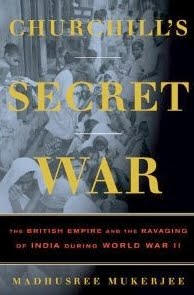
Subhas Chandra Bose, Congress’s president, saw the war as an opportunity to free India. Nehru, who had been to Europe, was also opposed to Hitler but felt it wasn’t clear what India would get out of the war. Gandhi was very sympathetic to the British he was horrified by Hitler and wanted to help win the war in nonviolent ways-economically, for example. The Congress Party had three main schools of thought. The Indian Army, the largest number of men the British could field, could be sent off to any war theater without the Indian government even being informed.

Its location let you reach Southeast Asia, the Middle East, Australia-the entire British Empire. India was also extremely important to Britain’s war plans. India was paying millions to hundreds of millions of pounds to Britain every year, including defense costs, which increased by 17 times during the war. But by 1939, most British politicians, though not Churchill, realized India had to be given concessions or be lost to the war effort. Initially, the British repressed it harshly. In the 1930s, Mohandas Gandhi drew millions of rural and village people into the National Congress Party, whose upper-class intellectuals, like Jawaharlal Nehru, spearheaded a nonviolent independence movement. It had been a British colony for nearly 200 years. She also argues that Churchill’s attitudes toward his beloved Empire’s “crown jewel” fostered a famine that killed millions. Unlike most British leaders, he refused to admit the Empire would have to change after the war, and did all he could to block it.” In Churchill’s Secret War, the Guggenheim Fellow traces India’s colonial history and overlooked wartime role. “India,” Madhusree Mukerjee says, “made Winston Churchill irrational.


Conversation with Madhusree Mukerjee Close


 0 kommentar(er)
0 kommentar(er)
